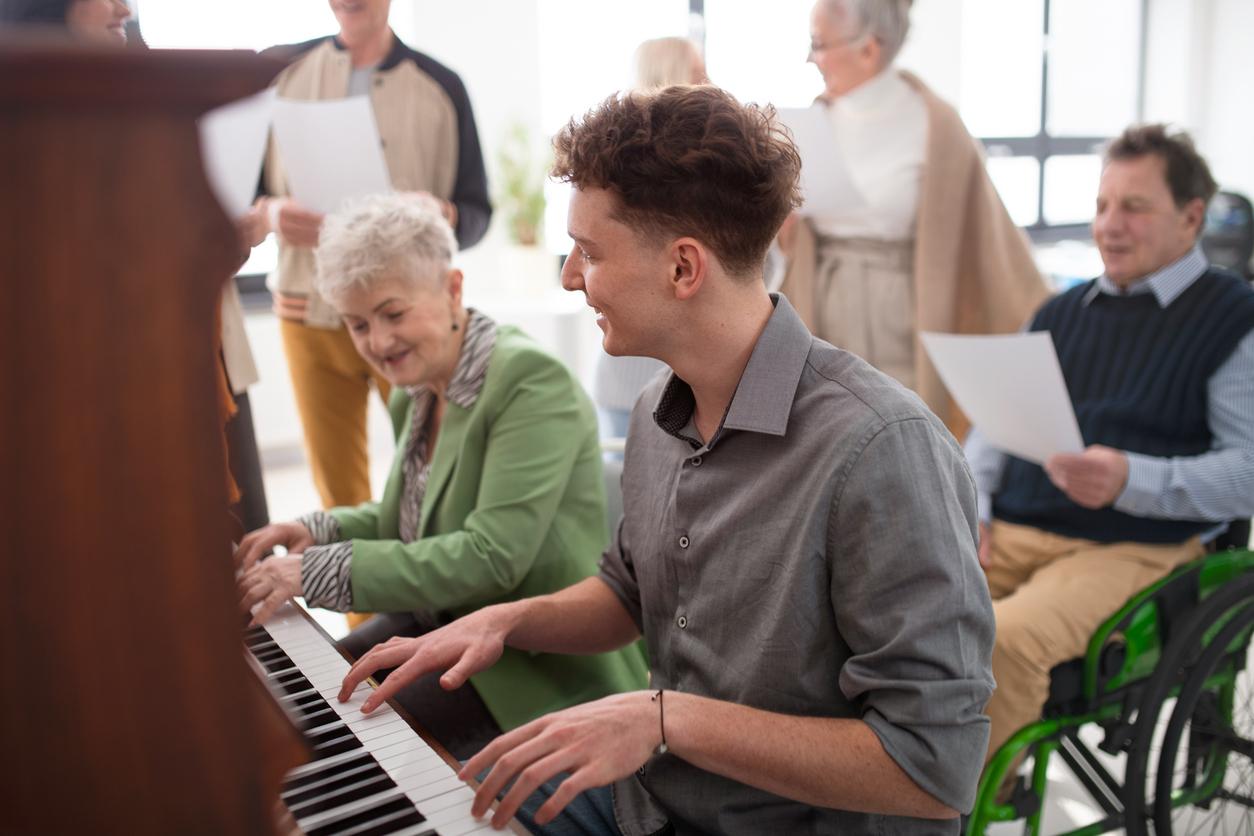The care of Alzheimer’s patients, in specialized structures as well as during the day, suffers from strong inequalities according to the regions of France.

Mixed results for the care of Alzheimer’s patients. On the occasion of World Alzheimer’s Disease Day, which will be held on September 21, the Médéric Alzheimer Foundation has produced a region-by-region panorama of the conditions for the care of patients and their caregivers. It highlights large inequalities in diagnosis, reception of patients and help to caregivers.
Memory consultations
850,000 French people are affected by Alzheimer’s disease, but 3 million citizens are indirectly affected, recalls this study by the Fondation Médéric Alzheimer. According to the regions of residence, spectacular differences emerge in the management of the disease. The number of memory consultations, which make it possible to make a first diagnosis, varies from 3 to 12 per 100,000 people over 75 years of age. Many departments are below the national average in number of structures offering a consultation of this type. Only Picardy stands out: it dominates the French average by 20%.
The waiting time for a first consultation also varies dramatically. While in Île-de-France, a patient waits on average 38 days, he will have to wait 59 days before getting an appointment in Lower Normandy.
The disparities are just as strong in access to places of information or gerontological coordination, mainly CLICs. The Rhône-Alpes counts 72 for 100,000 inhabitants, but the national average is only 18 places for the same number of inhabitants. Pays-de-la-Loire is doing well, as is Midi-Pyrénées, which dominates this average of 40%. Auvergne is clearly lagging behind.
Auvergne lagging behind
As for the accommodation of elderly people with Alzheimer’s disease, the picture is just as gloomy. On average, there are 122 places per 1,000 people aged 75 or over. But this estimate goes from 34 places to 153, in Pays-de-la-Loire.
When looking at the structures separately, the regions change dramatically. The places available in hospitals for dependent elderly people (EHPAD), long-term care units (USLD) or small living units represent 84% of the reception capacity. But of the 603,000 available, only 61,000 are reserved for Alzheimer’s patients.
However, most structures accept such patients, even if 33 to 75% of them place limits on this reception. In terms of the number of places available, Pays-de-la-Loire dominates the average by 20 to 30%, Poitou-Charentes by 10% and Rhône-Alpes by 10 to 20%.
Day care is much less developed. On average, 20 places are available for 1,000 people aged 75 and over. Depending on the region, availability varies from 1 to 51 places. Here again, Poitou-Charentes dominates the national average by 10% and Auvergne stands out for its backwardness.
As for the caregivers, they often find themselves alone in front of their task. Support structures for carers vary from zero depending on the region to 57 per 10,000 people over 75 years of age. There are 2,118 structures across the country, 241 of which are located in Île-de-France. Unsurprisingly, Poitou-Charentes dominates the national average (36 structures for 10,000 people) by 10%, as do Picardy and Pays-de-la-Loire. Corsica and Auvergne are far behind.
.















